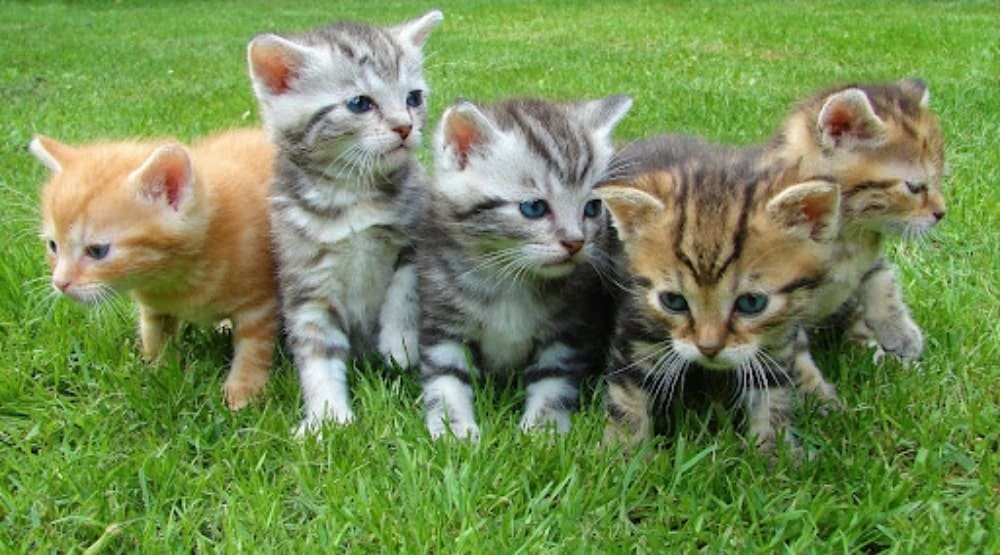Care for newborn kittens | Food, shelter, and vaccinations
Care for newborn kittens

How to care for newborn kittens, especially Persian (Shirazi) cats?
How cute are these little creatures with their soft fur and wide eyes!
I got this adorable doll faced Persian kitten and was a little confused about how to care for it.
So after searching high and low for the correct information, I convey to you the gist of my knowledge.
So please stay tuned!
How to care for newborn kittens?
Caring for a newborn kitten is dependent on several steps that must be carefully followed.
Kittens require food, warmth, a safe place to live, and vaccinations.
I’ll tell you everything in detail, so let’s get started with the first step.
What to feed a newborn kitten?
The answer to the question of how to care for newborn kittens begins with feeding them, but the second question here is; When can I?
In the first four weeks of life, newborn kittens feed on their mother’s milk, which is high in antibodies and nutrients, to protect them, develop their immune systems, and help them overcome diseases.
You can’t feed them dry or canned food before four weeks of age, and you can never feed them regular cow milk.
Cartoon shows like “Tom and Jerry” deceived us into thinking that cats feed on regular milk and fight to get it like Tom.
Unfortunately, this is not true, not even a little!
Cats cannot drink cow or buffalo milk, as it causes them to have many health problems.
But what if the mother cat is not there for any reason?
What do I do?
What do newborn kittens eat?
Kitten milk replacer
You can find a suitable kitten milk replacer in pet stores with labeled preparation instructions.
A milk replacer is an easy option but is a little expensive.
A kitten can also be fed goat milk, but it is not readily available in some places.
The solution here is to prepare homemade kitten formula yourself.
You will need:
- A small package of evaporated milk (unsweetened condensed milk).
- One egg yolk.
Mix the ingredients and store them in the refrigerator.
Preferably, serve the meal on the same day.
You also don’t use sweetened milk because sugars, in general, can harm your cat.
If it is easy for you to find goat milk, here’s how to make homemade kitten formula:
- One liter of goat milk.
- One teaspoon of corn syrup also called glucose syrup (can be made at home).
- A tablespoon of fat-free yogurt.
- Unflavored gelatin.
- Egg yolk.
First, Melt a small amount of gelatin with milk over low heat until melted.
Then, add the other ingredients and combine well.
Finally, keep in the refrigerator until use.
This kitten milk substitute recipe can be kept in the refrigerator for a whole week.
Warm the meal slightly in a water bath before feeding the cat, and you can test it on your hand before feeding.
Moreover, the kittens should be warm before feeding to ensure that they will fully digest the food.
You can tell that the kitten is cold from the temperature of the paws and nose just by touching them before meals.
Cats can be warmed with some clothes or with a newborn warmer.
Actually, newborn kittens should be warmed from birth most of the time, not just before meals.
How often do kittens feed?
The number of times a kitten feeds per day varies according to age.
It is crucial to keep track of how often your kitten is fed even while it’s sleeping.
The following is an example of a kitten feeding chart by age:
- First week: every 2-3 hours.
- Second week: every 3-4 hours.
- Third week: every 4-6 hours.
- Sixth week: 3-4 times a day, mainly canned food throughout the day.
- 12 weeks and over: 3 times daily, canned or dry food.
From the age of four weeks on, the kitten gradually becomes accustomed to canned food.
It is served next to milk until it moves to the stage of regular food.
When should kittens get their first shots?
There are no vaccinations immediately after birth.
Kitten vaccinations begin at six weeks of age.
Vaccinations against the diseases listed below are the most important:
- Rabies disease.
- Tuberculosis (Feline Distemper).
- Viral rhinitis (Feline Calicivirus).
How do you keep newborn kittens warm?

Kittens are born very small, around 100 grams, and thus cannot warm themselves and may die from hypothermia.
The most common cause of death for newborn kittens is Fading Syndrome, caused by a lack of heat during the first weeks of life.
Therefore, the most important thing about caring for newborn kittens is good heating, by observing the following:
- Use a cotton towel to wrap the kitten inside its small house.
- Newborn baby heaters are also a good choice.
- Some people choose to dress kittens in warm clothes.
- Use an electric heater where the kitten is, but with caution.
There are other causes for kitten death, such as:
- A weakened immune system and its inability to overcome infections and diseases.
- Low blood glucose level (hypoglycemia).
- Sensitive cats are exposed to some environmental factors.
When do kittens open their eyes?
Did you know that kittens’ eyes do not fully develop until after birth?
Cats are born with closed eyes because their eyes are not fully developed yet.
They are very sensitive to light, so they remain closed until they are ready to deal with the light and the surrounding atmosphere.
Kittens begin to open their eyes a week to 10 days after birth, gradually until they are two weeks old and open their eyes fully.
It is strictly forbidden to forcefully open the kitten’s eyes, as this severely injures it.
Instead, be patient, and it will happen naturally.
Also, a cat’s eye is susceptible to infection during the first few weeks of life.
So if you notice any eye discharge or crusting, take it to the vet’s office immediately.
How to take care of a Persian kitten?
Taking care of Persian kittens does not differ from other breeds except in one thing; Cat fur.
Persian cats need special fur care.
They have long, fine hair that must be taken care of from the first day of birth.
You should brush the fur daily and never rely solely on the kitten grooming itself with its tongue.
Persian cat fur gets tangled quickly and can lead to skin problems.
It may appear trivial, but it is just as important as feeding and warming the kitten.
You can get into the habit of brushing your kitten’s hair right before meals, which will be fun because it is waiting for food afterward.
Finally, you now know how to care for newborn kittens.
I strongly advise you to take care of these little angelic creatures even after they grow up and never let them go.